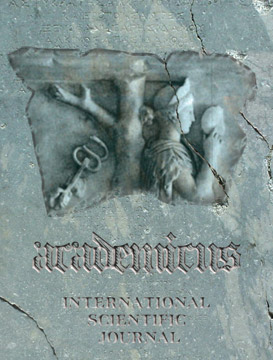Title:
Author(s):
Abstract:
In the paper we argue that no neat border line between ontology and epistemology can be drawn. This is due to the fact that the separation between factual and conceptual is rather fuzzy, and the world is characterized by a sort of ontological opacity which makes the construction of any absolute ontology difficult. Our ontology is characterized by the fact that the things of nature are seen by us in terms of a conceptual apparatus that is inevitably influenced by mind-involving elements, and all this has important consequences on both the question of scientific realism and the realism/anti-realism debate. Conceptualization gives us access to the world, while, on the other, it is the most important feature of our cultural evolution. While the idealistic thesis according to which the mind produces natural reality looks hardly tenable, it is reasonable to claim instead that we perceive this same reality by having recourse to the filter of a conceptual apparatus whose presence is, in turn, connected to the development of language and social organization. Our science is essentially relational, and not absolute. The information with which it provides us is appropriate, but from our point of view. Science provides reliable information on the world, but this information is always relative to a particular framework, and it is a mistake to think that the limits of our cognitive capacities only have an aprioristic character. Science constantly attempts at providing answers to our questions about how things stand in the world, and thus purports to offer reliable information about it. But it should also be recognized that the extent to which science succeeds in accomplishing this task is disputable. What kind of realism, thus, can we actually endorse? Despite what many relativists claim, realism still is an arguable and defendable position. If one asks what difference is made to our knowledge claims if we accept the existence of an extra-conceptual world, the answer is the following: such recognition undermines the diffused anthropocentric stance which identifies reality with our limited knowledge of it.
Keywords:
Realism, Anti-Realism, Ontology, Epistemology, Conceptual Apparatus, Nature
Full Text PDF:
References:
View complete reference list, click
here
Digital Object Identifier DOI:
The article's content ©Academicus™ A Limited View of Realism
by
Prof.Dr. Michele Marsonet
is licensed under a Creative Commons
Attribution-NonCommercial 4.0 International License.
Presented:
May 2012
Included for Publishing:
June 2012
Published:
July 2012,
Volume 3,
Issue 6
Academicus International Scientific Journal is an Open Access Journal. This means that all content is freely available without charge to the user or his/her institution. Users are allowed to read, download, print, search, or link to the full texts of the articles in this journal without asking prior permission from the publisher or the author. This is in accordance with the BOAI definition of open access. Users are obliged to cite the source (Academicus International Scientific Journal) and the author, according to the international citation standards.
To learn more about the OA Policy followed by Academicus ISJ, read Journal Regulations
Academicus
International Scientific Journal
pISSN 2079-3715
eISSN 2309-1088
Address:
Sheshi i Flamurit, Rruga Muze
Al-9401 Vlorë, Albania
Tel: +355 68 60 60 555
info@academicus.edu.al
https://academicus.edu.al



 Scholar
Scholar
 Crossref
Crossref
